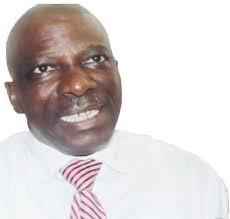Liberia: Judge Peabody Halts Proceedings in Criminal Trial of Margibi Superintendent, Others

— Cites Magistrate Fallah
Judge Kennedy Peabody of the 13th Judicial Circuit Court,in Margibi County, has accepted an application seeking for “stay of proceedings” filed by the International Law Group against Associate Magistrate Aaron Y. Fallah of the Weala Magisterial Court in the county.
Fallah will, on January 23, appear before Peabody.
Meanwhile, the court also ordered Fallah to stay all further proceedings in the criminal case brought by the Ministry of Justice (MoJ) against Superintendent Jerry Varney, Cinta Township Commissioner Roland Johnson, Wlah Clan Chief Musu Yango, Alvin Konneh, Freeman, and Andrew Yancy.
Varney, together with his co-defendants was charged with multiple criminal offenses that include criminal conspiracy, and felonious restraint.
Fallah’s appearance was triggered when he denied an application filed by the prosecution requesting a change of venue, arguing that, if the case was to be tried in the county, where the local authorities allegedly committed the crimes, they were of the firm belief that an impartial, independent, and fair trial would not be heard.
Besides, the magistrate immediately ordered the case to proceed, though the change of venue situation is still pending.
The prosecution further argued that the defendants are influential personalities in Margibi County, and therefore, they may use their respective offices or authorities to influence justice in their favor.
But Fallah’s ruling said that his court has seen no reason to grant a change of venue.
In the prosecution’s application challenging the judgment of Fallah, they argued that the decision was illegal, arbitrary, and prejudicial and that it was inimical to the interests of substantial justice and to the detriment of the prosecution.
They further argued that, consistent with practice and procedure, at the call of the case, the prosecution motioned the court for a change of venue, as provided by Section 5.7 of the Criminal Procedure Law. But, according to the prosecution, the magistrate, in abusing the language of the statute, denied the application without any respect to the text of the statute.
The section provides that “on motion of the prosecuting attorney or the defendants, the court may order the proceedings in a criminal prosecution transferred to a competent court in another county in any of the following cases: b) If there is reason to believe that an impartial trial cannot be heard in the county in which it is pending.”
It also states: “the motion for change of venue for transfer of proceedings on any other ground must be made at any time before the jury is sworn, or, where trial by jury is not required or waived, before any evidence is received.”
The prosecution also argued that Fallah has not commenced with the production of evidence in the proceedings and, given the undue influence and vulnerability of the area, they were of the firm conviction that an impartial trial would not be accorded to the private prosecutor and British national, Hans Armstrong.
The case grew when the private prosecutor Armstrong complained to the Liberian National Police (LNP), accusing the defendants of going to his operational area in the county to remove his equipment and earth moving machine that had been parked on a lease property.
But the defendants conspired and restrained him from removing the equipment and earth moving machine, unless he paid them an unspecified amount of money, to get easy access to his site.
It was based on the complaint and testimony provided by two of the defendants, Commissioner Johnson and Yancy, during the police investigation that led to their charges.
